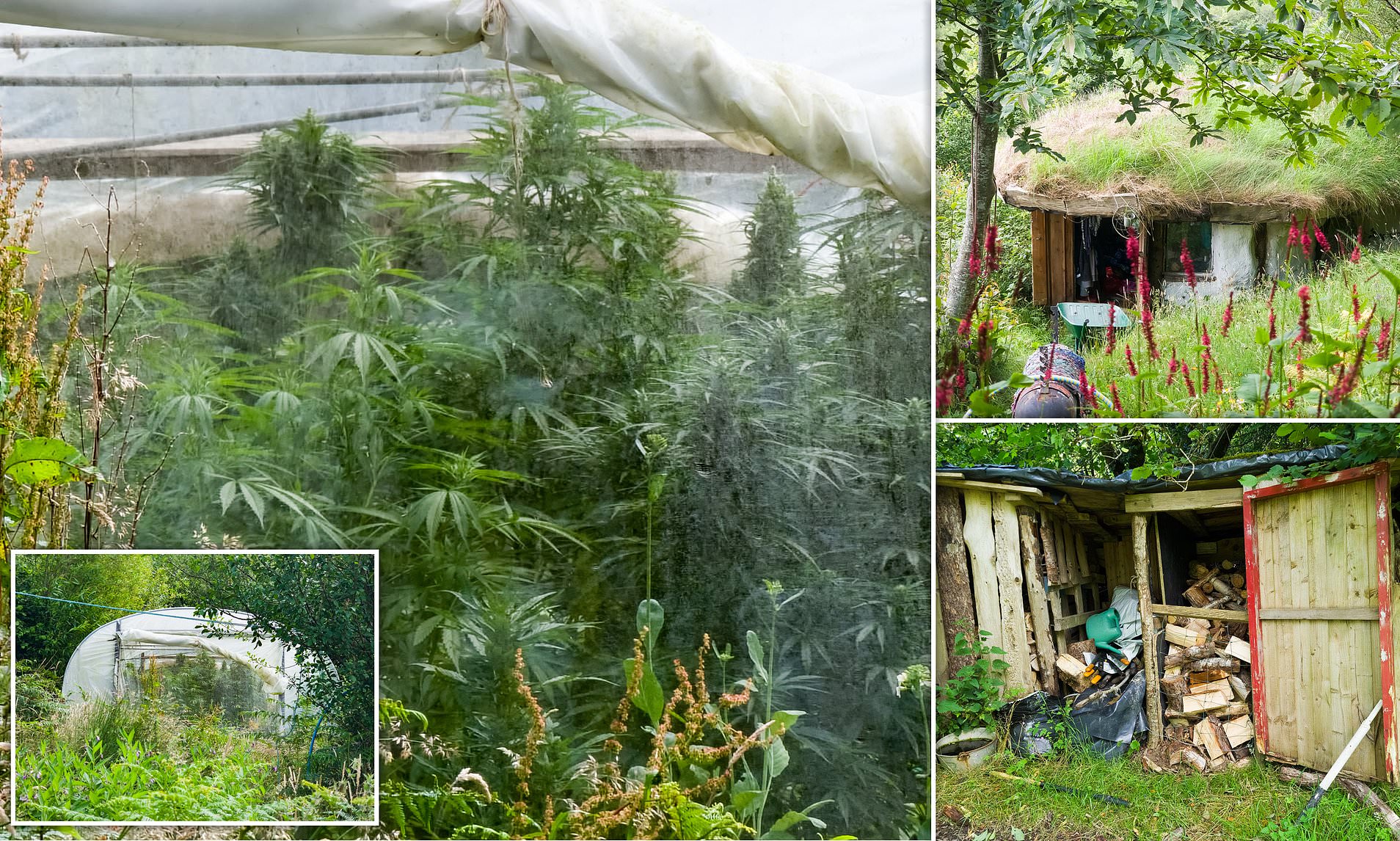A Unique Lifestyle in Tipi Valley
Living in a Welsh village known as Tipi Valley, a group of individuals has carved out a unique lifestyle that blends self-sufficiency with a deep connection to nature. This community is not just about growing their own food; they also brew their own alcohol and cultivate a wide range of fruits and vegetables.
The area benefits from a special microclimate, which allows for the cultivation of cannabis without the need for heat-intensifying poly tunnels. Many residents grow their own cannabis, using it strictly for personal consumption. The conditions are ideal, with plenty of sunshine and the right amount of rain, making the growing process almost effortless.
Irene Saunders, a former NHS hospital worker who has lived in Tipi Valley since she was 17, has been growing cannabis on her four-acre plot for years. She emphasizes that the cannabis grown here is for personal use only and not for sale. Her garden is a testament to the fertile land, where she grows various vegetables and fruits used to make homemade wine.
Her creations include wines made from elderberry, lemon balm, and even fennel. She also makes non-alcoholic fruit juices and cordials for her grandchildren, who have all been raised on the site. The community often hosts large parties at the communal Big Lodge, where homemade wines, beers, and ciders are enjoyed by many.
These gatherings highlight the strong sense of community and togetherness that defines life in Tipi Valley. Irene is proud to be part of a family that has lived there for three generations. She recalls how she moved there after being introduced to the place by her then-boyfriend, finding it to be a paradise compared to her previous life in Ramsgate.
Despite the challenges of living in a remote area, including harsh winters and occasional conflicts with local farmers, Irene remains committed to her lifestyle. She acknowledges that some early residents caused issues, such as allowing dogs to roam freely and burning fence posts, leading to tense situations with the local community.
Over time, the community has evolved, with more wooden lodge-style homes being built, reducing the number of tipis and yurts. Irene expresses concern about this shift, longing for the days when everyone lived under canvas. She also notes that some individuals are vying for power within the community, which has traditionally been non-hierarchical.
While the community values equality and mutual respect, there are ongoing discussions about the future direction of Tipi Valley. Despite these concerns, the community maintains its connection to the outside world, with many residents working in local towns and sending their children to local schools.
Irene’s home is a simple setup of two joined-up Portakabins, powered by solar panels and heated by a wood burner. She uses an old washing machine drum as a barbecue, highlighting the resourcefulness of the community.
She purchased her land almost 40 years ago from a local farmer, who charged a reasonable price for the land. The Tipi Valley Trust plays a crucial role in supporting the community, aiming to connect the site to mains electricity despite the high costs involved.
As the community continues to grow and evolve, the spirit of Tipi Valley remains strong, embodying a unique way of life that values sustainability, community, and a deep connection to the land.






